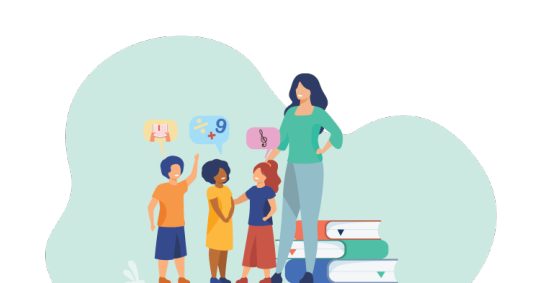Text
Is the Baader-Meinhof Phenomenon all around you? Let's see...

This phenomena is a frequency illusion where something you recently learned, heard, or noticed seems to appear more frequently afterwards.
But how does it occurs?
When you learn or notice something new, your brain becomes more active to that information, making you more likely to notice it again in the future.
Suppose while doing something, your eyes suddenly falls onto a word which you may have seen for the first time in your life. It may look strange to you and is feeded your memory. After that you may start noticing that word being used in conversations, articles, or even in advertisements.
But, this not only applies to words. This also occurs to names, faces, symbols, logos, patterns etc.
Is it useful?
This can enhance your knowledge and understanding of various topics.
Broaden your perspective by exposing you to different viewpoints, experiences, or patterns that you may not have noticed before.
But it can also.....
Create an illusion of significance of certain information, leading to misconceptions or overestimations.
Constantly noticing the same information or pattern can be distracting and may prevent from focusing on other relevant details or tasks.
Thanks to WWW.GOOGLE.COM, for the image and WWW.YOUTUBE.COM for a few information I used above. Rest is by my own research.
Thank You All for reading!!
#writblr#writers on tumblr#my writing#phenomenon#creative writing#interesting facts#information#writerscommunity
1 note
·
View note
Text
Four Basic Communication Skills you need to master to become an effective communicator

The following communication skills emphasis on empirical learning-learning by doing and on receiving feedback. These skills require continuous practice and reinforcement so that they became a part of your life while interacting with others. They are:-
Listening, giving and receiving feedback
Assertiveness
Solving problems
Resolving conflict
1. Listening, giving and receiving feedback :-
If we do not listen, we receive distorted or garbled messages. We have to be careful not to discard important information as irrelevant noise. The most skillful we are at listening, the better we are likely to be at communicating generally.
Most people find both giving and receiving feedback, handling praise and criticism, equally difficult- the result is that we often only hear and listen when there is a real problem.
Be descriptive, not evaluative.
Listen carefully.
Note areas of agreement/disagreement.
Ask for clarification/examples.
2. Assertiveness :-
Assertiveness is a means of making an impact on other individuals without encroaching on their personal arena: it is a means of influencing others without damaging your interpersonal relationships.
Being assertive lets you say what you want without overwhelming or abusing other people. Assertive behaviour is more likely to alter someone else's behaviour and less likely to violate his or her personal space; there is a little risk of damaging existing relationships or reducing the others self esteem.
3. Resolving Conflict :-
Conflicts, tensions, problems with individuals or groups are inevitable in organisations. Interpersonal conflict arises just as much because of the manner in which discussion state place as from disagreement on specific issues.
Do not make false judgements, e.g. confusing opinions with facts.
Concentrate on issues, gather facts.
Breakdown large issues into smaller and deal with each problem separately.
Identify areas of future conflicts and try to make agreements.
4. Solving Problems:-
Solving problems is all about trying to find some form of mutual agreement about decisions and actions to be taken in problem situations. You may have to share with others the problem, the facts, the feelings in the situation, so that you can make a high quality decision.
You have to balance the time and cost involved in the process against the quality of the decision required and the degree of commitment and motivation it produces.
Thanks to PRENTICE HALL essence of management SERIES for the information I used above,WWW.GOOGLE.COM for the image.
Thank You for Reading!!
3 notes
·
View notes
Text
These Study Habits Make You A Perfect Student

We may wonder how straight A students score better than us. They are passionate towards their goal and work hard unlike us. They avoid any kind of distractions and follow a productive schedule. If you also want to become a straight A+ student these tips may help you to achieve what you want.
1. Concepts once grasped, stays lifetime
There are some students who not only study for good grades but they study for Knowledge. And that's what make them intelligent. They avoid rote- memorization and believe in conceptual clarity. Concepts once learned cannot be forgetten easily and are stored in the brain forever. Therefore instead of just assuming studies as a burden, dig deeper, find your interest, and study honestly with conceptual clarity.
2. Proper time management and scheduling
What people nowadays do wrong is not scheduling their day. If we have a goal, we definitely have the road map of what is required to achieve my goal?, where to begin?, how to plan? etc. To make sure we make most of our time utilised to achieve our goal, we must plan and make our own schedule.
3. Barriers during the process
Distractions is what destroy us. It is the only reason for our wastage of time and improper health (sitting too long in front of devices, optical issues etc.) Be it electronic gadgets, friends etc. In order to avoid distractions from your life, you need to first figure out what is distracting you, Is it worth it, Does it waste your time?
The ultimate way to avoid distractions is Self Control on yourself. Self Control allows us to make better decisions towards our goal.
4. Enjoy the learning process
Don't settle for the outcomes of the work you have done. Be patient and focus on the present. Forget about the results. If your work would be worth it, the result will be fruitful.
Goal achieving requires good decision making and is a long term process. Remember discipline and patience are key to success. Instead of perfection, our progress should be tracked. Topper students may perform well in academic life but may fail in the real-world. "Knowledge" not only makes us intelligent but also makes us "Humble".
Thanks to WWW.GOOGLE.COM, for the image. Rest is by my own research.
Thank You All For Reading!!
5 notes
·
View notes
Text
Types of Academic "High Achievers"
We always have a student in our class who scores the maximum and are teacher's favourite. Due to this reason, we may feel displeasure or even hate them. But have we ever noticed their hard work ,passion , and dedication behind their excellence ?
Even I used to hate my class toppers in the beginning. But, when I interacted with them, I understood that they were no wrong. They taught me so much and here's how there are different types of "High Achievers" or "Toppers" :-

1. The first ones are those that are motivated by a desire to accomplish his/her goals. They strive to work hard and possess good qualities, behaviour with clear appearance. He she is willing to help their classmates and go through their problems. They accept their mistakes and learn from them. They confident and believe in themselves.

2. Second ones are those who are most likely introverts and don't approach many people. They focus on themselves and hesitate to tell their goals and plans. They are happy within themselves and do not engage in social and physical activities.

3. Third ones are those who do not seem what they look like. They may be selfish and always compete for their position. They are over confident and stick to teachers for their attention. They are not goal oriented and do not make their decisions carefully.
Therefore, we should believe in those toppers who are sincere and faithful. We should never step back in approaching them and learn from their good qualities.
Well....What kind of topper are you?🙃🙃
Thanks to WWW.GOOGLE.COM for the images.Rest is by my own research.
Thank You All For Reading!!
3 notes
·
View notes